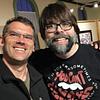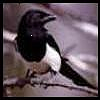Take a photo of a barcode or cover
Informative and fun read into the history of the major horror movies from the 70's.
A few weird, silly mistakes mar this otherwise fantastic look at the late 60s/70s horror scene.
This fun book covers the New Horror boom of the 60s and 70s (and into the 80s). Zinoman focuses on a movie or two per chapter, allowing room for relevant tangents and compelling character studies as well as filmmaking trivia. He discusses enough movies that, even if you might know everything about a couple of the movies, there will be other new info for you elsewhere. It’s a quick, engaging read with a lot of interesting anecdotes and information. A must read for fans of horror and movies.
informative
medium-paced
Shock Value tells the story of New Horror, the mostly independent movement in the 1970s to revitalize the genre, breaking from what had become the standard in horror: formulaic monster movies with the occasional gimmick (theatre seats with buzzers!) thrown in. The book tracks a few of the major players, like Wes Craven, Brian De Palma, Roman Polanski, John Carpenter, David Cronenberg, Tobe Hooper, William Friedkin, George Romero, and Dan O'Bannon.
It's no secret that I'm a fan of the horror genre - so much so that I rarely watch anything else. So much so that Netflix can't keep up with my consumption habits, even when I'll happily watch their 1-2 star selections. But I tend to stick to my role of consumer, and I often don't know the histories or the names of the directors (the catalogue enthusiast part of my brain is already sufficiently occupied by other topics). So it was interesting to me to get a little of the backstory.
Unfortunately, Shock Value felt a bit flat. The author hops around from figure to figure, and I think that I would have found it very confusing if I didn't already know many of the names. Chapters just sort of meandered until they reached their page length, and I didn't get the sense that they had focus or purpose.
Generally, I guess my complaint is just that the book "lacks soul." It throws out the information, but it doesn't dig deep, it doesn't tell a story. The closest it got was in the discussions with Dan O'Bannon, who seems like he could have justified a whole book himself. That's where Zinoman's passion peeked through, and I was intrigued enough to look up more information. But for the rest, the writing just felt very flat, telling anecdotes in a detached and almost haphazard way.
For fans of horror, the book might still be worthwhile, and there were certainly bits and pieces of interesting information. But it could have been presented in a better way. It's clear from O'Bannon's sections that Zinoman does have passion, and I hope he let's himself show it a little more in future works.
It's no secret that I'm a fan of the horror genre - so much so that I rarely watch anything else. So much so that Netflix can't keep up with my consumption habits, even when I'll happily watch their 1-2 star selections. But I tend to stick to my role of consumer, and I often don't know the histories or the names of the directors (the catalogue enthusiast part of my brain is already sufficiently occupied by other topics). So it was interesting to me to get a little of the backstory.
Unfortunately, Shock Value felt a bit flat. The author hops around from figure to figure, and I think that I would have found it very confusing if I didn't already know many of the names. Chapters just sort of meandered until they reached their page length, and I didn't get the sense that they had focus or purpose.
Generally, I guess my complaint is just that the book "lacks soul." It throws out the information, but it doesn't dig deep, it doesn't tell a story. The closest it got was in the discussions with Dan O'Bannon, who seems like he could have justified a whole book himself. That's where Zinoman's passion peeked through, and I was intrigued enough to look up more information. But for the rest, the writing just felt very flat, telling anecdotes in a detached and almost haphazard way.
For fans of horror, the book might still be worthwhile, and there were certainly bits and pieces of interesting information. But it could have been presented in a better way. It's clear from O'Bannon's sections that Zinoman does have passion, and I hope he let's himself show it a little more in future works.
I listened to the audiobook. Something about the combination of the author's voice and the scrambled timelines didn't sit well with me. I was really hoping for an examination of the sociology of horror.
My least favorite thing about this book was that it was too short. I love horror movies and I love reading about horror movies. This book focuses on that really golden age when low budget independent directors were changing the genre and making it mainstream by seeming to be anything but.
Even if I didn't like the genre it's always exciting reading about people getting together and making things that are going to turn out to be really special since they couldn't have known it at the time. Most of all liked hearing the different creators' theories about horror when that came into it.
Even if I didn't like the genre it's always exciting reading about people getting together and making things that are going to turn out to be really special since they couldn't have known it at the time. Most of all liked hearing the different creators' theories about horror when that came into it.
Really, 3.5, maaaaaybe closer to 4. Takes from the book: I need to meet some of my fav actors/directors/writers before they die; white dude pain continues to be boring, even when I love their art; I have a huge backlog of movies I need to watch; and my shitty male role models growing up means I'll be a great horror writer! The best part: I'm already writing a script similar to the one pitched in the book! Haha. Noticeable differences,and coming from a different perspective, but still hilarious.
Overall an excellent look into the development of modern horror, what influenced it and how it's influenced current entertainment. Some of the stories I've heard before but most were, if not fully new, had enough new details to them that I felt I learned something new about these movies and their creators.
I mostly read this book hoping to gain some insight into the popularity of movies such as Last House On The Left or Texas Chainsaw Massacre and while that didn't happen I do have a better appreciation for what went into making them and the impact they have had. I think I will just have to accept that fact that hyper violent movies will never make sense to me.
I mostly read this book hoping to gain some insight into the popularity of movies such as Last House On The Left or Texas Chainsaw Massacre and while that didn't happen I do have a better appreciation for what went into making them and the impact they have had. I think I will just have to accept that fact that hyper violent movies will never make sense to me.
Great view of the experiences of the filmmakers of the horror boom of the 1970s and their influence on the genre. It's a good overview for anyone interested in the era and learning about how we got to where we are now. I especially enjoyed reading about their personalities and working styles. Made me wish I had gotten to meet Romero.




